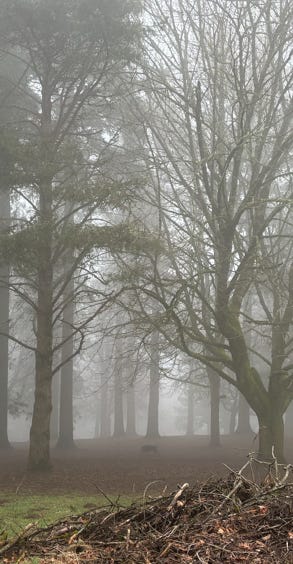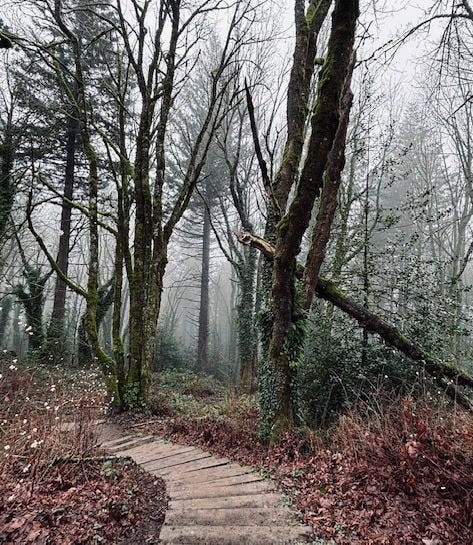President Biden’s somewhat dramatic final address to the nation ended with his concerns and caution to the public about the rise of an oligarchy and the tech world with the potential for abuse of power. He said more or less “Now it’s up to you…”
So what can we do? I couldn’t help but think of a book I read over the holidays. For me it was like a heaven-sent message. A message for the moment. I thought of it kind of like a How-to- Survive 2025 and beyond manual.
But before I give my thoughts on the book and why it impacted me, I’ll share that I found myself in a challenging position the month before.
I suffered an incident of internet hacking. It was scary. I reported it to the FBI who told me they are receiving 2,000 reports a day of cyber crime such as what I experienced. The website Fight Cyber Crime.org details what is so widespread now it’s frightening. It’s a wild west out there in the digital world and it’s only gotten worse in recent years.
I took it upon myself to change my habits online. Here’s what I did.
I began unsubscribing from multiple email lists that just feel overwhelming to me. The retailers in particular seem to bury us in their junk.
I deleted What’s App and Telegram from my phone.
I deleted my Facebook business page.
I deleted one of my two Instagram accounts. I kept my @kstanleyart account.
I deleted Twitter.
I ‘ve never used Alexa or FaceTime and I turned off any location tracking on my phone.
I block any unknown texters.
I started declining all Cookies on websites.
I stopped using Cloud Storage.
I stopped using my Fitbit watch and am back to using a regular old-fashioned watch. How nice to no longer have notifications or syncing with a smartphone or location tracking.
I stopped checking the phone when I get up in the morning. In fact I now keep the phone turned off during most of the day. Not on silent. Turned off completely. I also keep my laptop turned off during most of the day except for when I am using it.
I actually went 48 hours over Christmas without even turning on the phone or the laptop once.
I’m back to using our landline to calling family and friends.
I gave away about 100 books.
I noticed a few things from this digital detox- shift in habits regarding the digital world. I had more physical energy. I feel less anxious. I still know what’s going on in the world. I’m more relaxed. I cooked a lot more over the holidays. I don’t feel such a need to be online anymore. I don’t need to be online all the time. And yet all the essentials are done with more energy for the most important stuff. Like going for walks.
And then over the holidays we went to a bookstore and this book caught my eye. Sometimes a book lands, and you know it’s a watershed moment. This was such a book. I devoured it in a couple of days and the author validated everything I had been feeling the urge to do intuitively. In fact, he detailed exactly how he himself did all these things I did but he has the business background and understanding of the moment we’re living in to explain in easily understandable language why the book’s message is so valuable.
I’ll go so far as to say it’s an essential book of deep ecology because this guy knows how to ‘think like a mountain.’
The book is titled “Please Unsubscribe, Thanks. How to Take Back Our time, Attention, and Purpose in a Relentless world.” By Julio Vincent Gambuto.
I can’t emphasize enough how grateful I am that Gambuto wrote this book. He wrote an essay that went viral a few years ago – I remember reading it when millions others were reading it after the pandemic. Titled “Prepare for the ultimate gaslighting” he basically turned the essay into a book.
As I finished reading the book which just got deeper and richer towards the end, I couldn’t help but think about how he reminded me of Barack Obama. To me, Gambuto has the academic and business background, the writing skill, and most of all - the heart to deliver a message of hope for the moment like nothing else I have read in years.
I like to reflect on the ecological self, the part of us that we can cultivate to tap into our connection to the wider world around us. The part of us that can identify with our fellow creatures that walk the earth and feel our oneness with the earth.
The thing is, we’re not wired as humans to be connected to millions of people all the time. This is one of the messages Gambuto delivers and I get it. As someone who is super sensitive to energy, I know how draining it is to be in gatherings with a lot of people sometimes. Well, I could see that I was being drained by the digital world, and I see the difference unsubscribing is having more positively for my personal well-being in just a few weeks. Gambuto’s book is heaven and earth sent. He has a whole section on stepping away from “warring about politics online.” This is a message for the moment.
Which goes back to why I thought of the book after hearing President Biden deliver his stark warning to the country. One of the things Gambuto addresses is how the subscribing model of business engagement with the digital world has turned us into consumers at the expense of our citizenry and civil engagement.
Another interesting article caught my attention today as I heard the author interviewed on MSNBC yesterday. “The Anti-Social Century” by Derek Thomson in the February issue of The Atlantic magazine lays out the what the rise of the digital world has done to increase loneliness and unhappiness among people.
I would like to see a panel put together featuring Julio Vincent Gambuto, Derek Thomson and Nicholas Carr whose yet to be released new book “Superbloom: How Technologies of Connection us Apart” will also be a must-read for me.
We’re going to need to a lot of support walking through the fog of these shifting times.









Yes! to that panel! Yes to all you are sharing here. The deep ghastly loneliness and predation that the virtual world enables: that's a No for me too. Thanks so much for this.